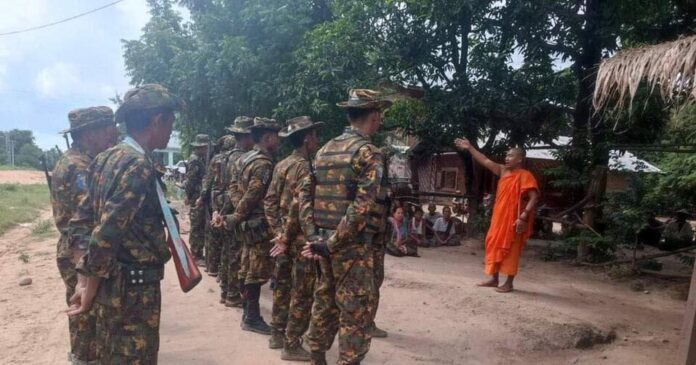Authors: Brenna Artinger, Michael Rowand
Affiliation: Independent researcher, Africa ASAP
Organization/Publisher: Foreign Policy
Date/Place: February 16, 2021/USA
Type of Literature: Argument
Word Count: 1345
Link: https://foreignpolicy.com/2021/02/16/myanmar-rohingya-coup-buddhists-protest/
Keywords: Myanmar, Buddhists, Monks, Military Coup, Army
Brief:
Myanmar is a country with seven different ethnic groups and 89% of its population identify themselves as Buddhists. The Buddhist majority results in the close support of Myanmar’s armed forces, the Tatmadaw, by Buddhist monks. Although Buddhism is never associated with extremism or violence by Westerners, the authors detail how Buddhist authorities in Asia have justified the use of violence “against the faith’s enemies” and thus are in favor of authoritative regimes. In the case of Myanmar, the authors explain the influence gained by Buddhist movements because of the power shift in 2011, and how the Patriotic Association of Myanmar and the 969 Movement have come to the foreground. Further, these movements have taken advantage by fueling fear and exploiting the insecurities of the population against the religious and the cultural “Other”. The harassment against other religions of Southeast Asia in the modern era is mentioned to be prevalent since 1915. According to Buddhist expert Paul Fuller, the protection of the Myanmar-Buddhist identity is of utmost importance since “Buddhism is under threat and needs to be protected” which narrative is highlighted in propaganda. Especially Islam is perceived as an “existential threat to the faith and the nation”. The implication of this view was the justification of violence against the Rohingya minority, who are not seen as “fully human” by the senior Buddhist monk Sitagu Sayadaw. Buddhist monks support the military, tolerate, and permit in return the atrocities of the military. As a result, the Buddhist and military cooperation have led to the genocide of the Rohingya, having the further effect that more than 700,000 Rohingya have fled to Bangladesh since 2016. Although a protest and civil disobedience movement has occurred as a counter movement to the Tatmadaw, the military has gained even more power and has become the main political power. The political situation in the country continues to remain further uncertain.
By: Dilek Yücel, CIGA Senior Research Associate




